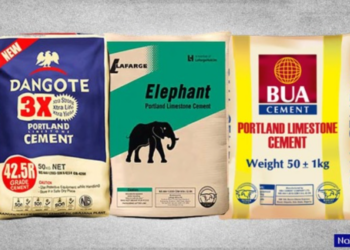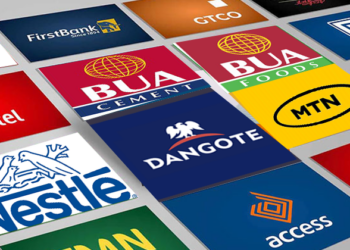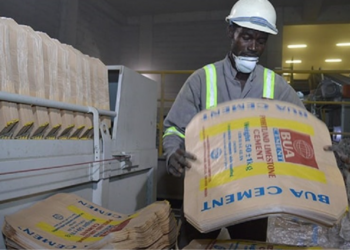Born two months before Nigeria’s independence, on the 4th of August, 1960 in Kano, to one of Northern Nigeria’s top business tycoons, Khalifah Isyaku Rabiu, not many would have guessed that the baby Abdulsamad would someday dwarf his father’s achievements by leaps.
Abdulsamad Isyaku Rabiu had his early education in north-western Nigeria before travelling to Columbus, Ohio to obtain his Business degree from Capital University.
He returned at the age of 24 years to oversee the family business, at a turbulent time when his father was being detained by the military administration over allegations of evading rice import duties. The young Rabiu would not be deterred but went on to weather through the challenges of the dwindling business and earn his own spot in the then uncertain business climate.
READ MORE: Aliko Dangote donates mobile COVID-19 testing lab to Kano State
Within 4 years, he established BUA International Limited in 1988 for the purpose of trading in commodity trading like rice, edible oil, flour, and iron and steel.
Two years later, Rabiu had a major break when BUA was contracted to supply the government-owned Delta Steel Company with raw materials in exchange for finished iron products. With this windfall, the company expanded its steel operations, producing billets, importing iron ore, and constructing multiple rolling mills in Nigeria.
Some years later, Abdulsamad had repeatedly proven that he had a Midas touch in business, acquiring the largest edible oil processing company in Nigeria – Nigerian Oil Mills Limited. Some years later, two flour-milling plants – in Lagos and in Kano – had joined the number.
This set the stage for his later moves to break the eight-year monopoly in the Nigerian sugar industry, when he commissioned BUA sugar refinery, said to be the second-largest sugar refinery in sub-Saharan Africa. This was a terrain that was, hitherto, only played in by the likes of Aliko Dangote.
In another well-calculated business move, Rabiu acquired a controlling stake in a publicly-listed Cement Company in Northern Nigeria and began to construct a $900 million cement plant in Edo State, completing it in early 2015.
READ ALSO: How the United States plans to control the African Development Bank
Rabiu is no stranger to the Forbes list of Africa’s richest, and even though he has had some years out of the list, the most recent Forbes 2020 list of Richest Nigerians in Africa pegs his net worth at $3.1 billion, courtesy of some dexterous business moves over the last couple of years.
The BUA foundation has been the vehicle through which Rabiu carries out most of his philanthropic gestures. Some of the projects carried out by the foundation include the construction of a 7,000-square-meter pediatric ward which was donated at the Aminu Kano Teaching Hospital, as well as ambulances and medical supplies.
READ MORE: Plentywaka raises $300,000, seeks partners as it launches operations in Abuja
Earlier in the year, the foundation made a donation of N300 million to Sokoto, Edo and Ogun states to assist in the response to the pandemic, and also a N1 billion donation to the COVID-19 relief fund accounts fight the Coronavirus in Nigeria. There was also another donation of N200 million to Adamawa state government, and ambulances to several other states.
Rabiu also made a personal donation of N1 billion to support Nigeria’s response to the virus, and medical and emergency kits and supplies to 9 States in the country.
Rabiu’s sterling contributions and achievements are not lost on many, and he has received several recognition and awards including the 2016 Industrialist of the year award at the All Africa Business Leaders Award (AABLA) organised by CNBC Africa, Silverbird Extraordinary Business Achievement Award, and the prestigious Commander of the Order of the Niger (CON) award.
Download the Nairametrics News App
His father, Khalifah Isyaku Rabiu passed on in 2018, just 5 months shy of 93 years. Having outperformed his father in business, it does not seem too ambitious to say that the mogul might just get to 120 years.
In that case, we would say he is halfway there. Cheers to Rabiu as he celebrates his 60th birthday in a very unostentatious style, since the rules of the pandemic do not permit large gatherings.























